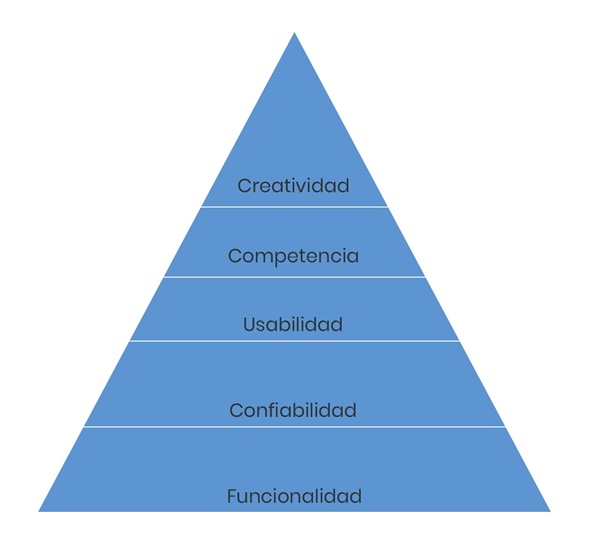Universal Design Principles: Hierarchy of Needs
This past weekend I have been discussing with some young
people about Maslow's Hierarchy of Needs and its importance in
understanding some social behaviors.
In the same way, the design also has a hierarchy of
needs based on Maslow's Pyramid that is worth knowing, because to
have a successful design, it must first satisfy the basic needs of people and
then try to satisfy the needs of the level. higher. Today we will review
this principle and some of its characteristics.
What does the principle of the hierarchy of needs say?
The principle of the hierarchy of needs says that a design
must satisfy low-level needs, it must work, before
higher-level needs, such as addressing creativity.
Poor designs try to meet the needs of different levels without relying on
hierarchy levels first, as good designs do.
 |
Hierarchy of Needs |
Let's review the five key levels of the hierarchy of needs:
Functionality
Functionality needs have to do with meeting the most basic
design requirements. YouTube was correctly positioned in the market
because it initially fulfilled the expected functionalities of the
platform: online video sharing .
Reliability
Reliability needs have to do with stable and consistent
performance. YouTube has existed since 2005, today it belongs to Google ,
and it is the most widely used website of its kind on the net. It works
consistently and you can play videos with an acceptable level of quality.
Other such websites are known to run erratically or are
subject to frequent crashes. Therefore, they do not meet reliability
needs, and are perceived as being of little value.
Usability
You may be surprised that this need appears on the third
level. Comment below why!
The usability has to do with how easy it is
to use a design. Recording a live video on YouTube and editing it
later is easy to do for any user.
If the difficulty of use is high, or the consequences of
simple errors are severe, then the usability needs are not met. Designs at
this level are perceived as of moderate value.
Competence
Competency needs have to do with empowering people to do
things better than before. For example, YouTube uses Artificial
Intelligence in its “autoplay” feature to boost its recommendation
engine. This allows people to do and see things that were not possible
before. A design at this level is perceived as of great value.
Creativity
Creativity is the level of the hierarchy at which all needs
have been satisfied. At this level, people interact with design in
innovative ways.
Design is used to create and explore areas that expand both
the design and the person using it. It is perceived as being of higher
value achieving cult loyalty among users. Some say that our modern era
started after YouTube, and we live in AD 16 :)
Conclusion
As you have seen, as in life, design also has a hierarchy of
needs. Therefore, you must use that hierarchy of needs in your projects
and ensure that lower-level needs are met before resources are dedicated to
meeting higher-level needs. Always remember the 80/20 Rule.
It's also important to evaluate your existing designs
against hierarchy to see where you can apply modifications. It is very
likely that an inverted pyramid of needs is responsible for the failure of your
project.












No comments
Note: Only a member of this blog may post a comment.